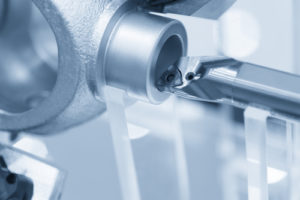
Shop Floor Machining
Foundries are industrial plants, from where molten metal including ferrous and non-ferrous is being poured and solidified conforming predetermined shapes of the die cavity. Nowadays, a majority of all produced goods relies on metal castings for molding other components, with trucks and cars being the biggest market served by foundries. The metal casting process is centuries old that used to rely on furnaces, and still does, but global foundries have reached an advanced stage in terms of usage of technology.
Technology to have advanced include the types of solidification simulation software for designing parts at an early stage of die casting, and usage of robotics for dislocating the castings from the die. Nowadays, there is a focus on consumption of energy owing to emerging trends to have influenced even the metal casting segment as a whole such as sustainable manufacturing to name one.
Computer-aided simulation process offer models that are more mature than what it used to be at a time when metal casting was stuck up with furnaces alone. This allows engineers in the foundry to use simulations to meet the demands of castings, thereby minimize trial and error to find the most adequate geometrical complexities that clients need in the end product.
For instance, a technology such as coordinate measuring machine brings an advanced level of precise measurement to shop floors of machining industry as a whole and provides an output or a set of properties that can be replicated to achieve a complex shaped product. Coordinate measuring machine is used to measure geometrical properties of a product or an object. The probe of this machine’s moveable axis defines measurements and reduces the burden of having to invest extensive labor for that.
It enables thorough and fast inspection of welded parts, slots, holes, as well as deformations to the engineers in a shop floor. Essentially, such advanced machines reduce the cycle time or the time that is required to finish machining of a component to the time required to reach the hands of customers.
Metal recycling is another important milestone of sustainable development, yet there is still a latent need for developing sustainable use of mating components in the process of metal casting. For instance, improved ways to use consumed mold sands and slag would continue to be explored in order to keep up with regulatory constraints with respect to disposal of waste.
